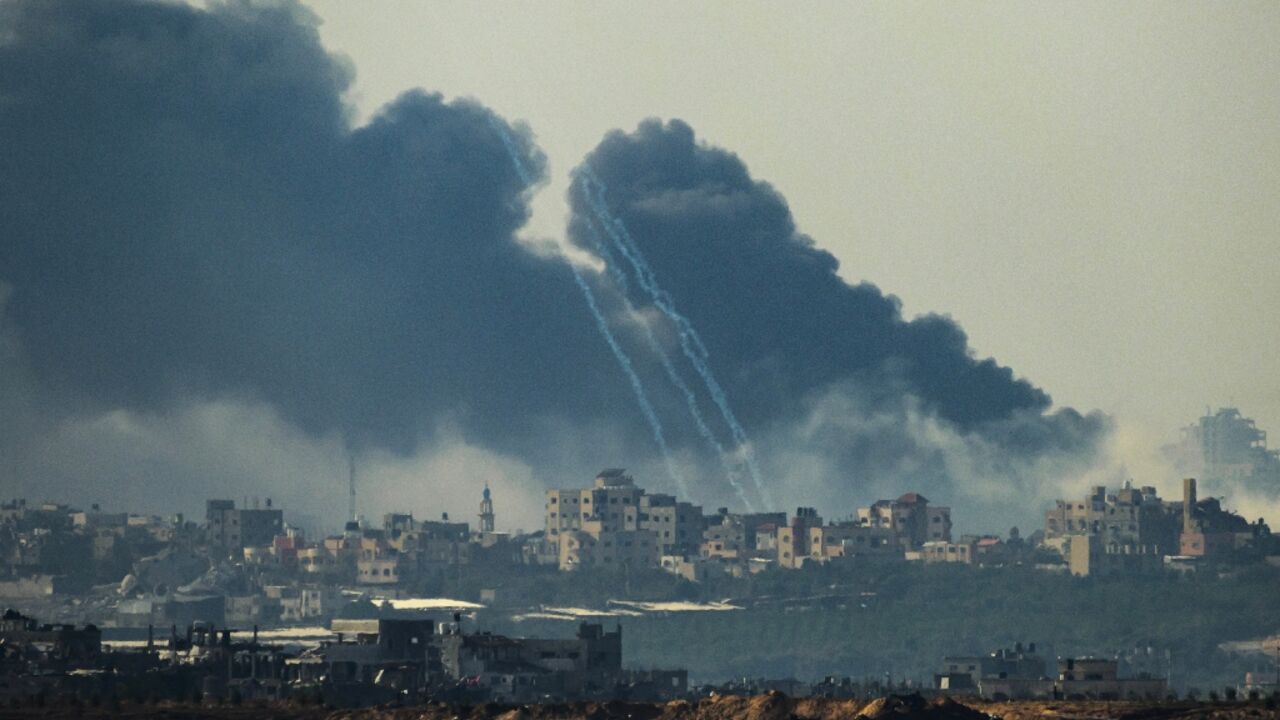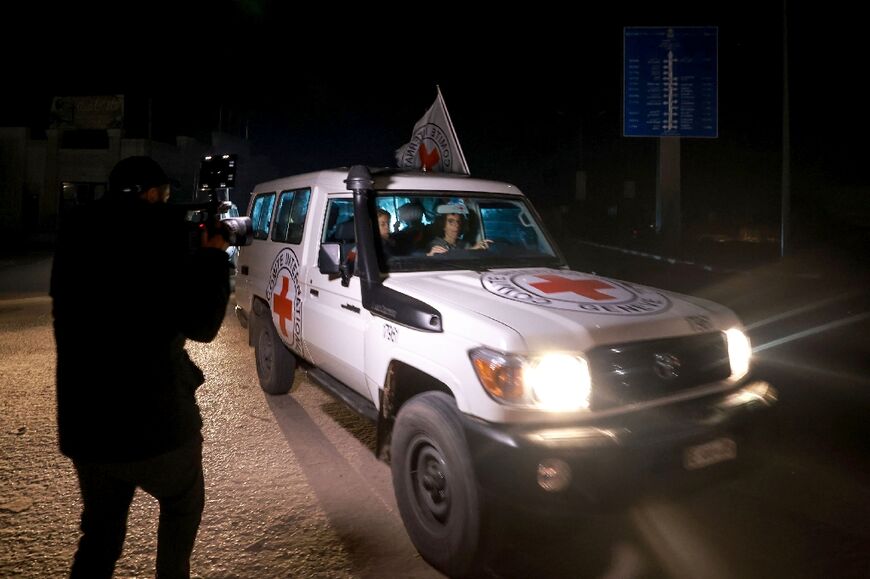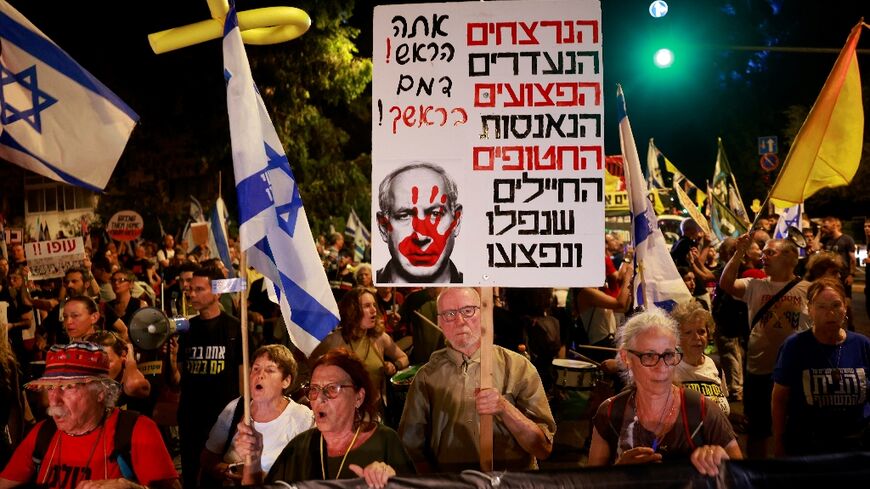'Hard blow' for Israeli hostage families as truce ends

The families of hostages still being held in Gaza on Friday said the end of a truce that saw 80 kidnapped Israelis freed was a "very hard blow" to bear.
Under an agreement between Palestinian militant group Hamas and Israel, the hostages were being released at a rate of 10 each day, forcing the families to endure an agonising waiting game.
But as the pause in the conflict ended early Friday, there was bitter disappointment for the families of those still not freed.
"We saw a chance for people to come out, be reunited with their families and resume their old lives," said Ilan Zharia, the uncle of 20-year-old Eden Yerushalmi, one of the women not to have been released.
His niece and other young women detainees had been "very close to being freed", he said, speaking at an event in Tel Aviv organised by the Hostage Families Forum.
During the week-long truce which ended early on Friday, 80 Israeli hostages taken during the unprecedented Hamas attack on southern Israel on October 7 were exchanged for 240 Palestinian prisoners.
Some 25 foreign hostages were also released separately from the deal.
More aid was allowed to enter Gaza, where about 80 percent of the population is displaced and short of food and water.
Around 1,200 people, mostly civilians, were killed in the October 7 attack and about 240 taken captive.
In response Israel vowed to eliminate Hamas and unleashed an air and ground campaign that Gaza's Hamas government says has killed more than 15,000 people, also mostly civilians.
- 'Release the injured' -
A visibly emotional Zharia appealed for ways to be found to continue the hostage releases despite the resumption of hostilities.
"We ask the Qatari and Egyptian intermediaries... we ask everyone, our country, Hamas, to sit down and find another framework to release hostages," he said, adding it was the "responsibility of all of us" to ensure they were not abandoned.
As the hours ticked down to the end of the truce, visiting US Secretary of State Antony Blinken called on Israeli leaders for an extension.
"Clearly, we want to see this process continue to move forward... We want an eighth day and beyond," he told reporters in Tel Aviv.
Negotiators have until now concentrated on securing the release of women and children.
The release of male hostages and soldiers, male and female, is likely to be much harder to negotiate, with their captors expected to demand a high price for their freedom.
Eli Shtivi, whose son Idan was kidnapped while attending a music festival, described the return of the hostages as "essential, and in particular the injured".
"The injured are suffering there and are not receiving care," he said, adding that they "should have been released first".
Despite the resumption of Israeli air strikes on Gaza Friday, mediators were continuing to shuttle between the two sides.
Tamar Tsoar, grandmother of 22-year-old hostage Omer Neutra, said she hoped an agreement could be reached to allow the release of more hostages, including soldiers like her granddaughter.
"We hope that the process will soon be resumed and that we will be able to take our Tomer in our arms along with all the other hostages," she said.






